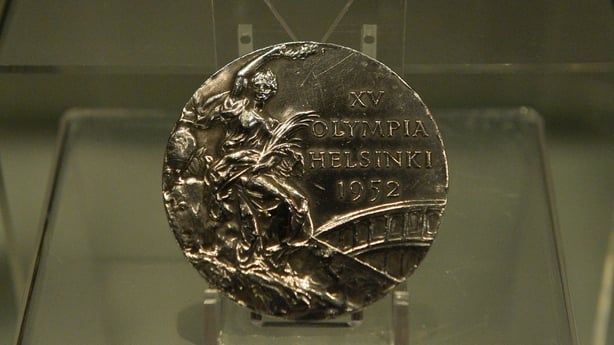There's a dearth of football action across the water this weekend after all Premier League, EFL and WSL games were postponed following the death of Queen Elizabeth II.
But what happened the last time the head of the monarchy passed away?
When the death of the occurred of Queen Elizabeth's father, George VI, in Sandringham in February 1952, the Republic of Ireland had left the commonwealth just three years previously.
Ireland's announcement that it had become a republic automatically meant their dominion status had been terminated and therefore left the Commonwealth.
Whilst the then leaders of the time sympathised with their British compatriots, television coverage of the coronation of the new sovereign was discouraged but not banned formally.
The king died on the Wednesday, and a full weekend of football was played in the UK the following weekend.
The scheduled FA Cup fourth-round ties also went ahead on the day of his death. Newcastle United would go on to retain the cup the following May thanks to a goal from Robledo.
Robledo was the first non-British-registered foreign player to become top scorer in England.
Ahead of the full round of league fixtures, Abide With Me - usually only sung ahead of the FA cup final - and the national anthem were sung ahead of kick-off.
Preston North End were beaten by Manchester United by two goals to one at Deepdale in the First Division. Irishman Johnny Carey was then captain of the side which was managed by Matt Busby.
The Reds would go on to win their first league trophy under Busby's tutelage that year.
Over 66,000 people attended the North London derby at White Hart Lane where the Gunners also ran out 2-1 winners. Future England World Cup winning manager Alf Ramsey played at full-back for Spurs.
Bill Nicholson who spent his entire career at Spurs, before going on to manage them to double success in 1961, also played that day at wing-half. Future Manchester City league-winning manager Joe Mercer lined out at wing-half for the Gunners.
A full round of football fixtures went ahead in the Irish League. Derry City hosted eventual league champions Glenavon who won the first of their three titles that year.
South of the border, St Patrick's Athletic defeated Evergreen United in Milltown by five goals to one on the Saturday whilst the rest of the league kicked off as usual on the Sunday.
They would eventually go on to win the league that year, in their first season entering the League of Ireland having come up through non-league football the year previous.
In the GAA the National Football League was centre stage as Galway welcomed Kerry in Division III, whilst Meath and Louth renewed acquaintances in Division IV. Sligo hosted Roscommon in Division V.
Then All-Ireland Champions Mayo were setting out to defend their title but were defeated by Roscommon in the Connacht Final. Cavan would go on to defeat Meath in the final after a replay.
In the National Hurling League Group A, Wexford welcomed the year’s previous All-Ireland runners-up Cork, while Dublin played Kilkenny in Croke Park, and Antrim hosted Waterford in Belfast.
Group B saw Westmeath host then All-Ireland champions Tipperary in Group B, whilst Clare welcomed neighbours Galway to Ennis.
The Rebels would go on to stop Tipperary completing the four-in-a-row, before going on themselves to win the next three All-Ireland titles.
An amateur boxing international took place between Ireland and England in preparation for the Olympics which were due to take place in Helsinki.
John McNally would go on to be Ireland's only medallist in that summer's games, winning the silver medal in the bantamweight division.

Racing went ahead as usual in Leopardstown whilst in the UK, all racing was suspended until after the king’s burial the following weekend.
New Zealand and the West Indies – who were still in the commonwealth at the time – played their test match as usual just days later on February 8th.
The Five Nations was in full swing at the time and the clash between Ireland and England in Twickenham had to be rearranged for the end of March.
Ireland were looking to defend their title having won three of the previous four championships, however it would be Wales who would go on to win their fifth title and ninth Triple Crown.


